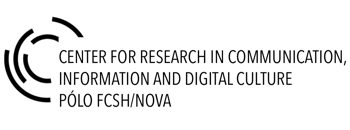This special section of China Media Research invites scholars from a broad range of disciplines to submit manuscripts on the theme of “Visual Online Communication in the BRICS Countries”. Visual Online Content here refers to imagery, GIFs, emoticons, pictures and other visual means that accompany text in an online environment, non inclusive of the audiovisual content and moving images. Despite the increasing prominence of visual online content on social media such as WeChat, Weibo, Facebook, Twitter, and Instagram, as well as traditional mass media websites across the BRICS countries, comparative academic studies focused on visual content are scarce. Recent discussions focused on plurality of emoticons such as hijabs, or emoticons with different facial color. Despite discussions in the public sphere, there is a lack of cross-cultural studies looking at the differences in imagery. This call for submissions therefore hopes to fill this research desiderate.
Arguably, a lack of visual communication research in the BRICS countries is attributed to the prevalent Western tradition in communication research. This special section serves to overcome the dominance of Western approaches in visual communications research.
Following these considerations, scholars are invited to submit their original manuscripts that address the following topics, among others:
– Comparative studies of visual online content from the BRICS countries,
including at least one BRICS country as comparative country;
– Content or discourse analysis of journalistic visual content,
advertisements, PR and political communication visual content and social web visual content in the BRICS countries;
– Research on use of emoticons in the BRICS countries;
Both qualitative and quantitative approaches investigating visual online content in the BRICS’ countries are welcome. Submissions must not have been previously published nor be under consideration by another publication. An extended abstract (up to 1,000 words) or a complete paper at the first stage of the reviewing process will be accepted. All the submissions must be received by May 26, 2017. If the extended abstract is accepted, the complete manuscript must be received by August 13, 2017. Manuscripts should be prepared in accordance with the APA publication manual (6th edition) and should not exceed 8,000 words including tables and references. All manuscripts will be peer reviewed, and the authors will be notified of the final acceptance/rejection decision. Please visit www.chinamediaresearch.net
for more information about the quarterly journal of China Media Research, which publishes
both print and online versions.
Please direct questions and submissions to the CMR special section guest editor Maria Faust at maria.faust@uni-leipzig.de.
